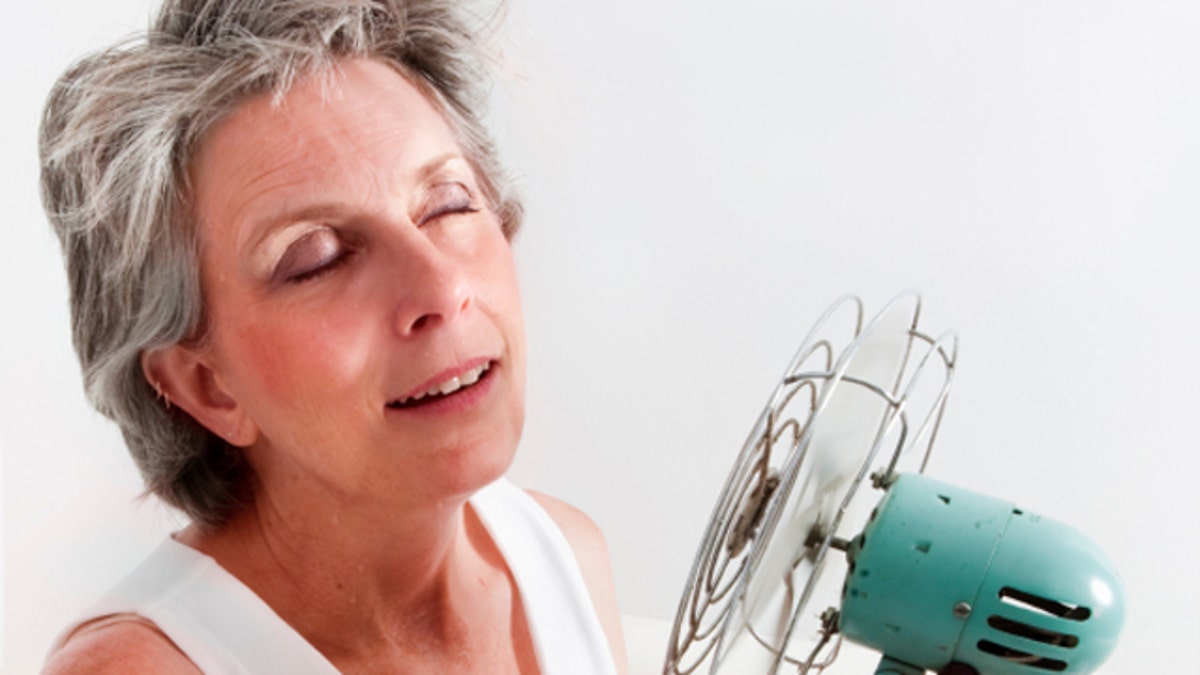
Women with severe hot flashes said their quality of life improved after taking mindfulness classes that included meditation and stretching exercises, according to a new study.
The findings also suggest that such classes could help improve sleep quality, stress, and anxiety in women during menopause.
In 2002, the Women's Health Initiative study found that the hormone therapy used to relieve menopause symptoms increased women's risk of stroke and breast and ovarian cancers slightly. Since then, women who suffer from hot flashes and night sweats during menopause have been left with few ways to get relief.
"There's a broad range of attitudes about hot flashes and how they should be treated," Dr. Ellen Freeman, a menopause expert at the University of Pennsylvania School of Medicine in Philadelphia, told Reuters Health.
"There are certainly many, many women who don't want to take hormones ... and don't want to take other drugs either," said Freeman, who was not involved in the current study. Mindfulness, on the other hand, "may be something that they find very acceptable."
Women with frequent and severe hot flashes often also complain about anxiety and stress related to their symptoms, as well as trouble sleeping.
Researchers based at the University of Massachusetts Medical School in Worcester wanted to see if a teaching such women mindfulness, which has been shown to relieve stress, might help.
They enrolled 110 women, nearly all of them white, with at least five or more bothersome hot flashes each day.
The women were randomly assigned to two groups. In one, participants went to weekly 2.5-hour mindfulness classes focusing on body awareness, meditation, and stretching. They also received CDs to guide them through mindfulness activities on their own on the days when they didn't have classes. Women in the second group, used for comparison, were put on a waiting list and had no mindfulness classes during the study, which lasted eight weeks.
At the beginning of the study, the women had about eight hot flashes a day and three night sweats each night, and were somewhere between "moderately" and "extremely" bothered by their symptoms, according to questionnaire responses.
They also reported trouble sleeping and had anxiety and stress scores considered above the normal range in healthy people.
By the time they finished the mindfulness program, the women were less stressed and anxious and were no longer considered out of the normal range for those symptoms.
They also slept better, rated their quality of life higher, and were less bothered by their hot flashes — an improvement that was still clear three months after women had completed the classes. At that point, the women were between "slightly" to "moderately" bothered by their hot flashes.
The women on the waitlist also got a little better, but didn't see as much improvement as those taking mindfulness classes.
Women in both groups had improvements in the intensity of their hot flashes, but women taking mindfulness classes did not improve any more than those on the waiting list according to the findings, which are published in the journal Menopause.
At the end of the program there was also no difference between the two groups in the frequency of their hot flashes.
That suggests that these classes may be most useful for helping women cope with their hot flashes, rather than getting rid of the hot flashes themselves, the authors said.
The program presents a possibility for women with bothersome hot flashes who don't want to take medications such as antidepressants or other over-the-counter treatments, Freeman said. "It's kind of what suits the particular woman," she said.
Both Freeman and the study's lead author, Dr. James Carmody, acknowledged that spending hours in relaxation classes may be less feasible than popping a pill every day.
The drawback to this kind of program, Carmody told Reuters Health, is that "this requires a time investment that for many women is not possible."
However, this kind of mindfulness program is widely available, and may be covered by insurance for some women, Carmody said. He also said that he and his colleagues are currently testing the effects of a similar program in four-week form.
"We want to see if a shorter program would have the same effects," Carmody said. "Anything that makes it more accessible for women."








































